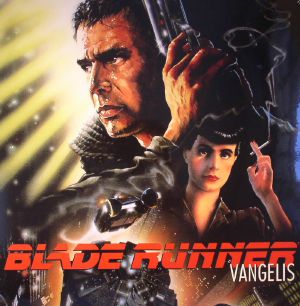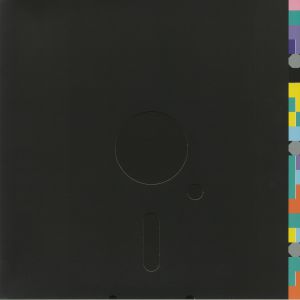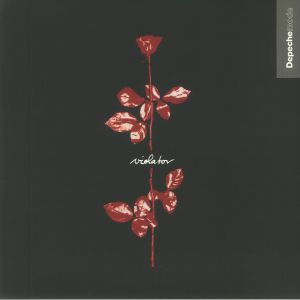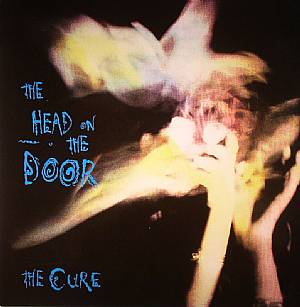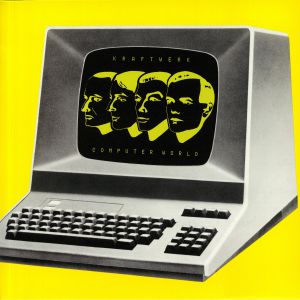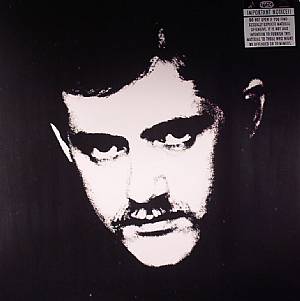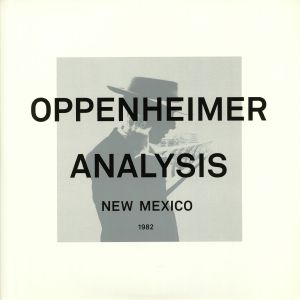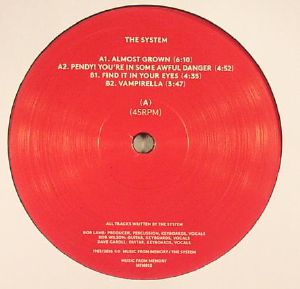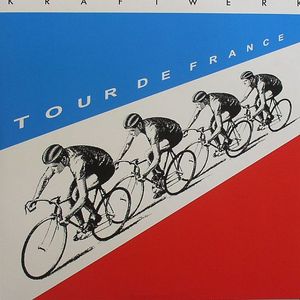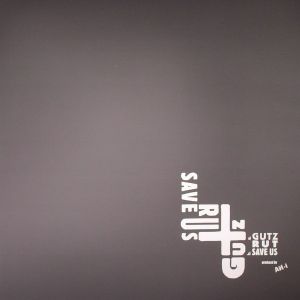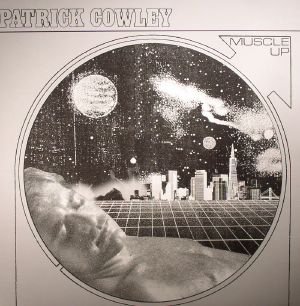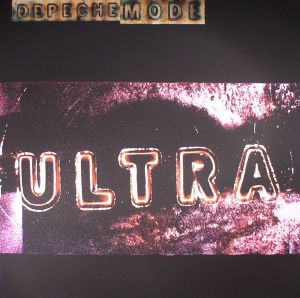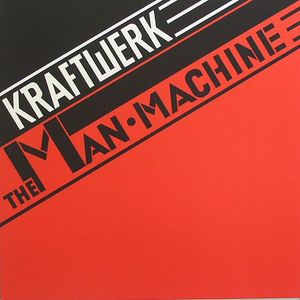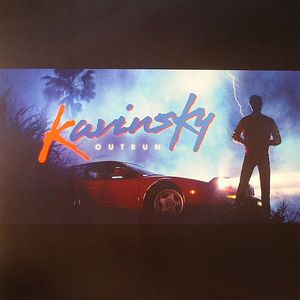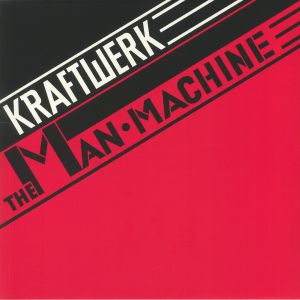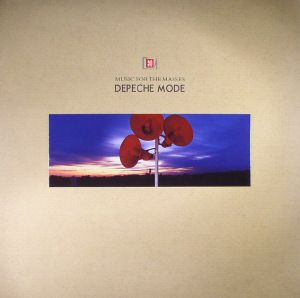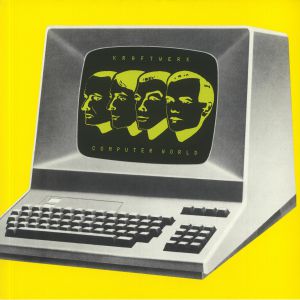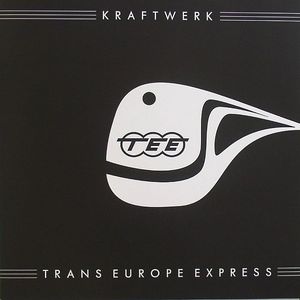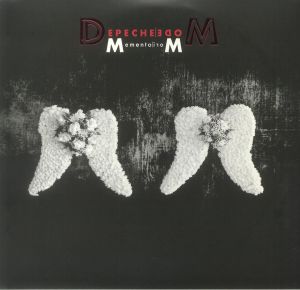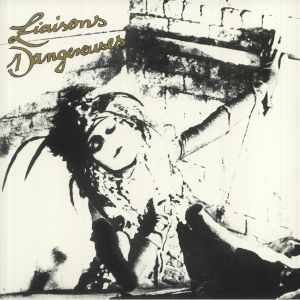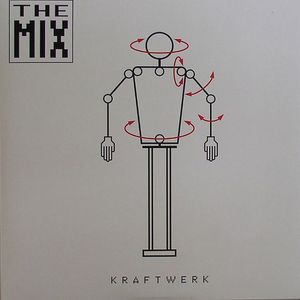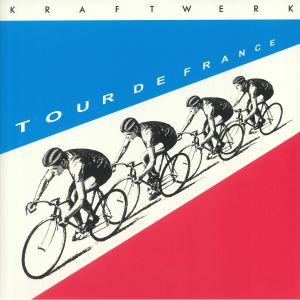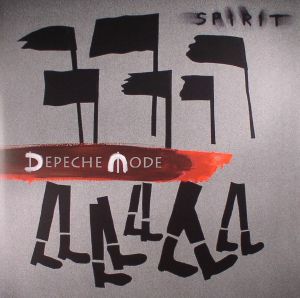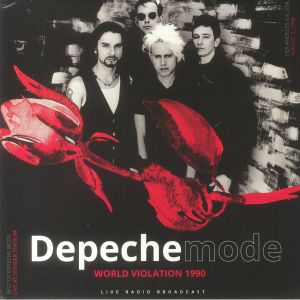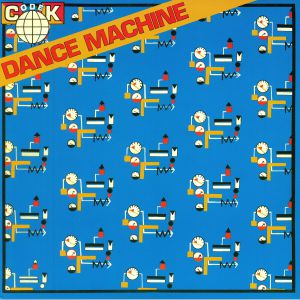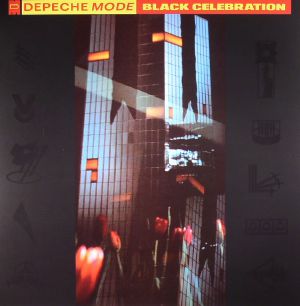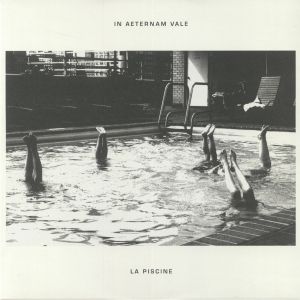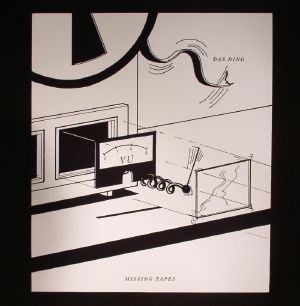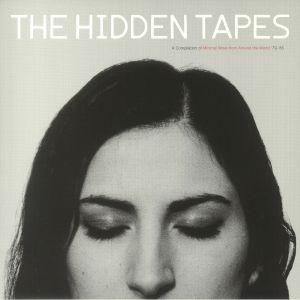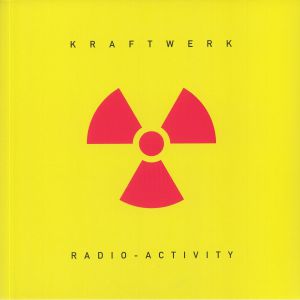Filter
Genre
Type
Music
Label
Release Title
Price
Tags
Leftfield charts
Bestselling Leftfield vinyl in stock $26.28
Blue Monday (remastered) (heavyweight vinyl 12" in die-cut sleeve)
Cat: 019029 5665913. Rel: 21 Jul 22
Review: You might think that you could cop a copy of New Order's seminal hit 'Blue Monday' fairly easily and cheaply given its ubiquity over the years. But no, copies in good condition still fetch around 50 quid, so this remastered reissue is well worth a cop. The single's iconic bassline and twitchy synth modulations very much soundtrack a generation, if not an entire youth revolution, but still enliven any dance floor many years later. What's more, the de-humanised vocals will always provide real singalong joy. On the flip is a 'The Beach', which is drenched in echo and reverb and general sonic filth.
… Read moreGespielt von: Juno Recommends Funky House, Juno Records Staff Picks
in stock $14.66
Violator (reissue) (gatefold heavyweight vinyl LP + insert)
Cat: 889853 36751. Rel: 14 Oct 16
Gespielt von: Balearic Mike & Ben Monk
in stock $27.66
in stock $28.49
Review: Amongst collectors of post-punk era cassettes, Solid Space's sole album, 1982's Space Museum, has long been a sought-after item. While scarce and hard to find, the demand is largely down to the music contained within. Combining bright and spacey synthesizers with cheap drum machines, fuzzy guitars and vocals musing on science fiction and isolation, British DIY musicians Matthew Vosburgh and Dan Goldstein (previously both of of Exhibit A) created something surprisingly magical and alluring despite its lo-fi creation. For proof, check this first ever vinyl edition from Dark Entries, which thrillingly also contains two previously unreleased cuts from the duo's archives.
… Read more in stock $22.41
Review: Given that it's been eight years since the last Boards of Canada album, Tomorrow's Harvest should, by rights, push Daft Punk's Random Access Memories in the hype stakes. Certainly, it's a fine set. During their sabbatical, Marcus Eoin and Michael Sandison have lost none of their power to amaze and impress. Chords drone, samples hiss, synths shimmer and beats swing. There are intense ambient moments and intoxicating, post-IDM dreamscapes. It is in turns icy, warm, introspective and blindingly picturesque. Throughout, Tomorrow's Harvest is impeccably atmospheric, conjuring images of windswept Scottish moors, becalmed Cornish bays and maudlin pagan ceremonies. As comeback records go, it's pretty darn good.
… Read moreGespielt von: Exium, Andrew Pirie (Melting Pot), Ian Blevins, Dokta Venom, Tornado Wallace, Slothboogie, Far Out Radio Systems, Eamon Harkin, Mister Saturday Night, Daniel Andreasson, Roberto Rodriguez (Manolo), Juno Recommends Experimental, Seahorse & Castle, Felix Bergleiter (Nonetheless), Kastil (Soul Notes/Stale), Rivet, THE EXALTICS, Abstraxion, Spittal (Craigie Knowes), Vaal, Loz Goddard, Barrientos, Vlsonn, Carlo, Kasket (apollo records)
… Read more in stock $32.91
Gespielt von: Kito Jempere
! low stock $16.32
Review: Initially released in 2010, Minimal Wave's retrospective of obscure French '80s outfit Deux remains one of the label's most sought-after compilations. Here, it gets a deserved re-press, allowing a whole new generation of listeners to fall in love with the quirky works of the Lyon-based duo. The album's ten tracks, which were drawn from various obscure cassettes and seven-inch singles, effortlessly join the dots between moody electro, cold-wave, new wave and eccentric synth-pop, reflecting the pair's esoteric approach to wayward electronic pop. This second edition comes in a hand-numbered edition of 999 copies, with Minimal Wave's usual attention to detail present on the weighty packaging.
… Read moreGespielt von: Tomasz Guiddo
in stock $26.54
Gespielt von: AJELLO, Andy Ticker, Rolando, Mick Welch (Elektrosouls), Dmitry Distant, Juno Classics, ImiAFan
in stock $26.83
Review: School Daze is a killer compilation put together by the Dark Entries label and the Honey Soundsystem crew, collating some of the early recordings produced by Patrick Cowley in the years between 1973-81 and were later used as soundtrack material in two gay porn films. You will probably know Cowley for his Hi-NRG output or 'that' Donna Summer remix or his behind the buttons work on Sylvester tracks. Be prepared for a surprise (well quite a few as the 'explicit content' warning on the cover lives up to its billing) as this collection presents Cowley as a producer capable of many styles and moods. The closest School Daze comes to the sound Cowley is most identified is opening track "Zygote" and from here the collection runs through primitive electronics, short bursts of wave and more with a few extended gems that highlight Cowley's talent for arrangement. One of the compilations of the year!
… Read moreGespielt von: Joe's Bakery, Alexis Le-Tan, Charles Maurice, Felix Dickinson, Old Spice, Lawrence Le Doux, Guillaume Des Bois (Macadam Mambo), Curious Disco, Ikpathua, Sito / / Mischio Dischi Disco, Manu Archeo, Erik Skantze, Telephones, Tarjei Nygard, Stupid Human, SONNS / Machine Limited, Sleazy McQueen, Kid Who, Horton Jupiter, Juno Recommends Leftfield, Juno Recommends Experimental, Marsman, Nick The Record, Eddie C, I Love Disco!, Juno Classics, Steve Lee, Tony Poland, Brioski, J. Haller, Joe Drive, Alan Dente, Thread London, Facial Index (Brutaż/Piktogram/BLA), Avalon Emerson
… Read more in stock $30.71
New Mexico: The Complete Collection (gatefold 2xLP)
Cat: MW 058. Rel: 04 Mar 24
Review: For fans of minimal wave and DIY electronic pop, Oppenheimer Analysis's self-released 1982 debut cassette, New Mexico - little more than an extended demo cassette - has become something of a collector's item. While it has been reissued digitally since, it never received a vinyl release. In tribute to Martin Lloyd (the other half of the duo, alongside Andy Oppenheimer), who passed away recently, Minimal Wave has decided to make New Mexico available on wax for the first time. While the sound quality is appropriately dusty (it was badly recorded in the first place, of course), the music remains magical - bubbling, evocative, left-of-centre leftfield pop created with home-made synthesizers, modular hardware and little else. It's no wonder many consider it a classic album (even if was never officially released first time round).
… Read moreGespielt von: Tagwell Woods, Juno Recommends Leftfield, Juno Recommends Experimental, Marsman, Ali Renault, Hyboid, Iron Blu, Nehuen
in stock $36.50
Review: In typical Music From Memory fashion, their latest archival release shines a light on one of the UK's lesser-known bands of the early 1980s. The System released a lone single in 1981, followed by a now incredibly rare debut album, Logic, in 1983. Three of the cuts here are taken from that set, including the dreamy, downbeat Balearic-pop opener "Almost Grown" - a wonderfully evocative six minutes, all told - and the far-sighted, spacey, proto-techno shuffler "Vampirella". This EP also includes one previously unreleased track, "Find It In Your Eyes", which was rescued from long-forgotten master tapes during the licensing process.
… Read moreGespielt von: Alexis Le-Tan, Lexx, Jonny 5, Yiannis 'Nova' Dorakis, Tunnel Signs, Mr. Fiel, Manu Archeo, Jonny Rock, PHANTOM ISLAND, Max Essa, Moscoman, Juno Recommends Leftfield, Mellophonia, RIZZOLO DJ, Richard Zepezauer (RZ-1), Kenneth Bager // Musicfordreams, Your Name (Legalize Lambada), Alex Bradley, Ali Renault, Admir Korjenic, Roberto S, Alan Dente, Nicky Soft Touch, Jura Soundsystem, A VISION OF PANORAMA, Balearic Mike & Ben Monk
… Read more in stock $21.58
101 (reissue) (gatefold heavyweight vinyl 2xLP + 16 page booklet)
Cat: 889853 377114. Rel: 14 Oct 16
Gespielt von: Juno Recommends Leftfield
in stock $32.08
Gespielt von: Kone-R (Uncharted Audio), Juno Classics
in stock $33.18
Gutz (limited fluorescent orange vinyl 12")
Cat: CITI 015. Rel: 19 Nov 14
Review: Earlier this year Minimal Wave offshoot provided one of this year's most visceral dancefloor weapons in Kino-I, the debut from Doug Lee's new An-I project. Taking inspiration from techno, jack, industrial and punk, An-I successfully drew a line under some of the Berlin-based artist's previous disco-flavoured endeavours. And then some! If you like the Kino-I 12" you will love the new triplet of An-I productions housed on this appropriately titled Gutz 12". The title track alone should come with a health warning; such is the furious onslaught of machine funk it contains, whilst the unnerving "Rut" is the most schizophrenic production you will hear this year. Best of all id closing track "Save Us" sounds like a cross between in Aeternam Vale and Silent Servant. Pressed on a rather thick and dashing slab of magenta orange vinyl!
… Read moreGespielt von: Alexis Le-Tan, Tunnel Signs, Justin Van Der Volgen, Tripeo, Jacques Renault, Marsman, Jamie Behan, Francis Inferno Orchestra, 3.14, In Flagranti, Kelvin Andrews, Ali Renault, Rogér, Kito Jempere, Edward Navarro, Lurid Music, Lena Willikens
… Read more in stock $21.58
Review: Having previously impressed with their reissue of Patrick Cowley's brilliant, all-synthesizer soundtrack to obscure '70s gay porn flick School Daze, Dark Entries and Honey Sound System once again join forces to shine a light on the high energy disco pioneer's work for San Francisco's Fox Studios. Unsurprisingly, it's another impressive collection, and features material recorded for a number of different pornographic films. There are naturally more up-tempo moments - see "Somebody To Love Tonight", which would later be re-recorded with Sylvester, and the synth-weirdness-meets-jazz-funk brilliance of "5oz of Funk" - but it's the impressively cosmic and exotic ambient moments, such as the stand-out "Timelink" and "Jungle Magic", that really stand out.
… Read moreGespielt von: Alexis Le-Tan, Spacetricks, Melon, Eric Duncan, Dj soFa, Marsman, Eddie C, Francis Inferno Orchestra, RIZZOLO DJ, I Love Disco!, Ali Renault, Admir Korjenic, Rogér, Andy Hart, Rulefinn, Kris Baha, Thread London, TAPE_HISS, Blair French, DJ SCM (Warm Tapes Adjustment)
… Read more in stock $28.49
Ultra (reissue) (gatefold heavyweight vinyl LP)
Cat: 889853 36911. Rel: 20 Jul 22
in stock $28.21
Gespielt von: Ste Roberts
in stock $26.66
Etazhi (reissue) (transparent green vinyl LP + MP3 download code)
Cat: SBR 3037LPC4. Rel: 17 Dec 21
Review: Sacred Bones Records has a real coup here as they serve up yet another pressing of the debut album of Belarussian post-punk and synth pop trio Molchat Doma. Originally dropping in 2018 on Berlin label Detroit Records, it was an instant hit online and had more than a million YouTube views in no time at all. The band remains low-key back home but have toured Europe and six successive pressings of this record have all disappeared in quick fashion. With Egor Shkutko on vocals, Roman Komogortsev on guitar, synths and drum machine and Pavel Kozlov on bass and synths, the collective cook-up inviting fusions of new wave, synth pop and post-punk that is dark but alluring, danceable yet thoughtful.
… Read moreGespielt von: ROTCIV
in stock $22.12
in stock $26.54
Review: Following up last year's production with Baltimore techno legend Maurice Fulton on 'Jigoo', the next release on Gudu is the first of two songs by label boss Peggy Gou that she will release over the coming months. Her first single in over two years, it translates to 'Butterfly' and is another collaboration. This time with fellow Korean sensation OHHYUK who is the lead singer and guitarist in the band Hyukoh. 'Nabi' is a downtempo, pop-inflected number said to be inspired by '80s synth classics and '90s Korean songs that Gou's mother used to play at home during her childhood.
… Read more in stock $13.83
The Man Machine (reissue) (limited heavyweight translucent red vinyl LP)
Cat: 019029 5272333. Rel: 09 Oct 20
Review: There isn't a more hit-packed Kraftwerk album than The Man Machine. First released in 1978 and here reissued on red vinyl accompanied by a fresh booklet of vintage images, the album boasts some of the German band's best loved songs, including 'The Robots', cheery sing-along 'The Model', the staggeringly good 'Neon Lights', and the bubbly title track. It shows how good the album is that such gems as 'Metropolis' and the picturesque 'Spacelab' - cuts that most other bands would kill to be able to write - tend to be ignored or overlooked. If you love electronic music, you need a copy of The Man Machine in your collection.
… Read moreGespielt von: Juno Recommends Leftfield, Juno Recommends Experimental
in stock $24.07
Gespielt von: Juno Classics
in stock $32.91
Music For The Masses (reissue) (gatefold heavyweight vinyl LP + insert)
Cat: 889853 36731. Rel: 01 Jan 90
Gespielt von: Juno Recommends Leftfield
in stock $28.21
Computer World (reissue) (heavyweight translucent yellow vinyl LP + 16 page booklet)
Cat: 019029 5272302. Rel: 09 Oct 20
Review: You still won't find a more perfect electro album than Kraftwerk's Computer World, and it was the album that pretty much invented the style. That much is clear from this fresh 2020 reissue, which presents the iconic 1981 set on translucent yellow vinyl, accompanied by a slick booklet of fitting Kraftwerkian imagery. While 'Computer World', 'Pocket Calculator' and 'Computer Love' are near perfect electro-pop songs, it's the sheer heaviness and funkiness of the B-boy friendly beats on 'Home Computer', 'It's More Fun To Compute' and, most famously, 'Numbers' that make it such an essential. Put simply, Computer World still sounds like the future.
… Read more in stock $29.05
Gespielt von: Rising Sun, Samo DJ
in stock $30.98
Inform Educate Entertain (gatefold LP)
Cat: TCRVA 01. Rel: 10 May 13
Gespielt von: Juno Recommends Rock/Indie, Thread London
in stock $24.62
Review: London's legendary Mute institution goes back to its roots and digs up some of the best work by one of the UK's finest Cabaret Voltaire. These guys don't really need an introduction give the fact that they're pretty much responsible for the rise of post-punk right through to the birth of techno. It was about time a new compilation of their stuff was released, especially one as brutally on-point as this one! All the classics such as "Nag Nag Nag", "Kneel To The Boss" and "On Every Other Street" are one here but the more obscure rarities that were previously only available on 7" are the real winners. "Just Fascination", for example, is one you'll certainly want on a longer, re-mastered cut! Downright essential!
… Read moreGespielt von: Juno Recommends Experimental, Snuffo
in stock $21.85
You Know What It's Like (LP + MP3/FLAC download code)
Cat: BLACKESTLP 015. Rel: 28 Oct 16
Review: Singer, songwriter and multi-instrumentalist Carla Dal Forno was once a member of a number of legendary Australian outfits. These days, the Melbournian resides in Berlin, which is presumably where she met Blackest Ever Black boss Kiran Sande. He loved her clandestine, atmospheric take on pop - think minimal wave, cold-wave and early Joy Division mixed with contemporary ambience, and leftfield synth-pop - and has decided to put out this debut album. Comprised of four songs and four instrumentals, You Know What It's Like has a timeless feel; the folksy, Scott Walker-influenced "Dry In The Rain", for example, sounds like it could have been recorded at any point over the last 40 years, while "Dragon Breath" has a genuine Radiophonic Workshop feel.
… Read moreGespielt von: Alexis Le-Tan, Leo James, Dj soFa, Juno Recommends Experimental, J. Haller, Leonard Lampion, Fieldhead
in stock $14.38
Long Time Lie
Happens All The Time
Always
All That's Mine
Review: 32 years on from the release of their debut album Speak and Spell, Basildon's finest drop their 14th full length. While there are echoes of their eyeliner-wearing, synth-bothering futurist past (see the glitchy "My Little Universe" and early New Order-ish "Broken", where Dave Gahan sings about 'dreaming of the future'), for the most part Delta Machine finds them in grinchy synth-rock mode, presumably shaking their fists at passing youngsters like a gang of grumpy old men. Thankfully, they're still capable of great things - "Soothe My Soul" has echoes of "Personal Jesus" - and there's enough to suggest there's some life in the old dogs yet.
… Read moreGespielt von: Juno Recommends Experimental, Blocks
in stock $31.53
Review: Don't let the "Coldwave" tag fool you: this EP from Dutch archival imprint Music From Memory is every bit as glassy-eyed and loved-up as the rest of their left-of-centre, Balearic-minded catalogue. German drummer and composer Curt Cress first released "Dschung Tek" in 1992, layering his own dense tribal drums across a tropical, ambient house and dream house influenced backing track on the brilliant "Long Version", before stripping it back to a loved-up, Ibiza-friendly house cut on the "No Live Drums" version. Both mixes can be found on this reissue, alongside a trio of similarly percussive, tropical-minded cuts from the artist's 1983 LP, "Avanti". All three are ace and almost as good as the more floor-focused title track.
… Read moreGespielt von: Marco Gallerani, Alexis Le-Tan, Rocco Universal, Yiannis 'Nova' Dorakis, ROTCIV, Buzz Compass, Manu Archeo, Goshawk/Rhythm Plate, Kaoru Inoue, Dj soFa, Juno Recommends Leftfield, Eddie C, Kenneth Bager // Musicfordreams, Akioki, Your Name (Legalize Lambada), Doo, DJ ROCCA, Nummer, Sould Out, Blair French, Francesco Rossini, Jake Stellarwell, LEGO EDIT, Juno Records Staff Picks
… Read more in stock $15.48
Memento Mori (limited trifold 180 gram red vinyl 2xLP (side 4 etched) in debossed sleeve)
Cat: 196587 92641. Rel: 24 Mar 23
Review: Depeche Mode's latest album Memento Mori is one that has been madly anticipated by fans. The record - which comes on wax and in a lovely embossed sleeve here - centres on the mood of grief after the passing of the band's founding member Andrew "Fletch" Fletcher, this is the first LP by a Depeche Mode made up of only two remaining members: Dave Gahan and Martin Gore. The band's progression in their latest years have heard them move into darker, peakier, sadder and more industrial themes, as they make do with a future-present that wasn't promised to them in the 80s, while drawing on deathly topoi and nodding to Ingmar Bergman.
… Read moreGespielt von: Juno Recommends Leftfield
in stock $60.58
Review: Liaisons Dangereuses self-titled debut album was not an immediate success on its' release in 1981, but its' influence would spread far and wide. Almost entirely made up of synthesized rhythms, chords and melodies - with the addition of stylish vocals from all three band members - it would help define the "electronic body music sound". It quickly became a big record in both Detroit and Chicago, inadvertently helping to inspire the nascent techno and house scenes. Listening again to this reissue, it's amazing how well the music as aged. While heavy on stylish posturing, it still sounds thrillingly futuristic and alien. It should be an essential purchase for anyone with even the smallest interest in the history and development of electronic music.
… Read more in stock $21.85
Tour De France (Special Edition) (limited translucent blue & red vinyl 2xLP + booklet)
Cat: 019029 5272104. Rel: 09 Oct 20
Review: Kraftwerk first toyed with the idea of making a concept album based on the Tour De France in the early 1980s, so it was probably inevitable that the cycling-mad group would eventually deliver on that promised. First released in 2003 and now reissued in re-mastered form on red and blue vinyl, the album is the most techno-centric set in the band's discography. While it still boasts their usual recurring melodic themes, tuneful motifs and robotic vocoder vocals, many of its hypnotic and euphoric tracks (particularly the three-part title track that dominates the first half of the album) are far weightier and more club-focused than their earlier releases. For that reason alone, it's worth a place in your collection.
… Read more in stock $42.87
in stock $24.62
Spirit (gatefold 180 gram vinyl 2xLP (side 4 etched) + MP3 download code)
Cat: 889854 11651. Rel: 17 Mar 17
Review: Recent reviews of Spirit, Depeche Mode's first studio set for four years, have remarked at how angry and frustrated the band seems to be throughout. Messers Gore, Gahan and Fletcher are not particularly happy with the way the world is right now, and have laid down an album of rare intensity, seemingly fuelled by a growing desperation at political events on both sides of the Atlantic. Producer James Ford undoubtedly played a role in defining the sound of Sprit, but the combination of raucous, punk style guitars, thrusting electronics and big choruses is what we've come to expect from Depeche Mode.
… Read more in stock $27.39
Gespielt von: Juno Recommends Leftfield
in stock $15.77
Review: Codek is the brainchild of Jean-Marie Salaun who grew up in Paris influenced by the folklore of the inner city. In 1978 he joined art rock group SpionS alongside Gregory Davidow and recorded two singles. Diving into the Paris post punk scene he met Claude Arto and designed the artwork for Claude's single on Celluloid "Kwai Systeme / Betty Boop." Robin Scott (M "Pop Music") had produced the SpionS first single and wanted to collaborate further. With Claude, Jean-Marie wrote "Me Me Me", intended for a choir, for M. Then SpionS split and Robin was off to Switzerland to record an album to follow-up his hit single. That left Jean-Marie alone in London, where he began working as Codek, a play on the brand name Kodak The "Me Me Me" single was released by MCA Records in 1980. Back in Paris, now with some studio experience, Celluloid Records hired Jean-Marie to produce records for Artefact and Les Orphelins. Over the next 2 years he began working on ideas for the next Codek single "Closer / "Tam Tam".
… Read more in stock $13.26
Suburban Hunting (limited heavyweight coloured splattered vinyl 2xLP)
Cat: CITI 018. Rel: 23 Nov 15
Review: It's been a delight to see Oliver Ho's Broken English Club project develop artistically over recent times, with some fine records for Jealous God and Veronica Vasicka's Cititrax label along the way. Suburban Hunting sees Ho deliver his debut Broken English Club album, featuring some 11 tracks of primitive electronics and cinematic pseudo techno cuts. Tunes like "Vacant", "Derelict", or "Scum" all share a loose techno framework, but the real aesthetic is much vaster than that, verging on remnants of post-punk, industrial and all that goodness and hybrid class that came out of the late 1980's. It's another fine addition to the sublime Cititrax discography, and we recommended it just as much as the previous numbers.
… Read more in stock $34.57
VARIOUS
The Bedroom Tapes: A Compilation of Minimal Wave From Around The World 1980-1991 (heavyweight vinyl LP)
Cat: MW 066. Rel: 26 Feb 18
Review: Over the last two or three years, New York's Minimal Wave outpost has focussed on releasing plenty of new music that fits in line with their unashamedly 'cold-wave' approach, and this has opened them to a whole variety of listeners and DJs. However, in our opinion, where they truly shine is in providing the underground masses with compilations such as this latest The Bedroom Tapes: A Compilation Of Minimal Wave From Around The World 1980-1991, a glorious snapshot of all the very best slices of lo-fi that has largely gone unnoticed to the modern eye. Of course, the majority of these tunes are now expensive in their original formats, but we're taking about a small crew of Discogs sharks who are upping the prices. Here, you're able to properly - and peacefully - enjoy some of the very best minimal machine-drum soul from peeps like Karen Marks, Vorgruppe, Perfect Mother and Aural Indifference, among others. This truly is a feast for the modern digger. Excellent.
… Read more in stock $27.93
in stock $28.21
Review: Fans of mechanical techno-not-techno sounds will be all over Minimal Wave's latest transmission from 80s French underground heroes In Aeternam Vale. Having reissued several essential lost works from the outfit last year, most notably the proto-Sandwell sound of "Highway Dark Veins", Veronica Vasicka delivers another two tracks from the vault. Stylistically mirroring that previous two track release the title track is an equally brilliant synth-techno beast which could easily pass for a Function track today, while B-side "Calling Somewhere" sounds like a cold wave version of proto-halfstep. Needless to say, the fact that these tracks are 22 years old literally left us speechless.
… Read more in stock $21.58
Autobahn (reissue) (limited heavyweight translucent blue vinyl LP + 12 page booklet)
Cat: 019029 5272432. Rel: 09 Oct 20
Review: Autobhan, the 1974 album that began Kraftwerk's ascent to legendary status, is still capable of making the hairs on the back of your neck stand on end. The headline attraction remains the absorbing, mesmerising, 22-minute title track, a musical whizz down an imaginary three-lane highway that's as evocative and atmospheric as they come. That said, the album's lesser-celebrated, more experimental flip-side tracks (and in particular the jaunty 'Kometenmelodie 2'), are also inspired. Here it gets the 2020 reissue treatment via a tasty blue vinyl pressing that comes packaged with a 12-page booklet of historic photos and typically utilitarian imagery.
… Read moreGespielt von: Juno Recommends Experimental, Juno Records Staff Picks
! low stock $27.93
Review: Minimal Wave have done the right thing here and repressed HSTA by Das Ding, undoubtedly one of the most popular heavyweight reissues of their reign thus far. Das Ding is of course Dutchman Danny Bosten, active in the mid 1980s from his Southern Holland base releasing his pioneering brand of electro as well as his friends' music via his own Tear Apart Tapes cassette label. HSTA refers to the Highly Sophisticated Technological Achievement tape Bosten released on the STUM label from which Minimal Wave also took several tracks including the title jam, which you're likely to hear Funkineven dropping these days. It's worth investing in this for "Take Me Away" alone, which sounds likes its been beamed down from the future despite its three decade vintage (Weatherall's a big fan of this one) and the remaining six tracks are just as thrilling.
… Read more in stock $26.54
Review: For Missing Tapes, Minimal Wave has managed to unearth a wealth of previously unheard gems from Dutch electro trailblazer Danny Bosten. Dark electro diggers may be aware of Bosten's early 1980s work, which was initially self-released on cassette, but has also been re-issued since by Minimal Wave and others. The material here was recorded in the same period and rediscovered some years back by the producer. It's similar in style, as you'd expect, with Bosten variously exploring otherworldly electro, sci-fi leaning Italo-disco, stylish, new wave synth workouts, and throbbing proto-techno. What impresses most, though, is the seeming freshness of the material; it might be 35 years old, but it still sounds formidably futuristic.
… Read more in stock $26.54
VARIOUS
The Hidden Tapes: A Compilation Of Minimal Wave From Around The World '79-'85 (180 gram vinyl LP)
Cat: MW 030. Rel: 19 Apr 23
in stock $26.54
Gespielt von: Wes Baggaley
in stock $29.05
Radio Activity (reissue) (limited heavyweight translucent yellow vinyl LP + 16 page booklet)
Cat: 019029 5272388. Rel: 09 Oct 20
Review: To our ears, 1975's Radioactivity is Kraftwerk's most ghostly and otherworldly album. It was famously their first set made entirely with electronic instruments - some home-made - and now sounds like a bridge between the more krautrock-style hypnotism of the earlier Autobahn and the slicker, more tuneful albums that followed it. In other words, it's as weird, alien and otherworldly as it is ground-breaking and pop-leaning. This 2020 reissue is well worth picking up, not least because it comes pressed on translucent yellow vinyl and comes accompanied by a glossy, 16-page booklet full of iconic Kraftwerk images.
… Read more in stock $25.44

 USD
USD






